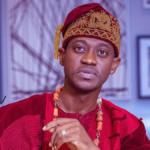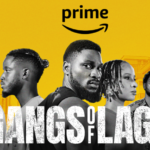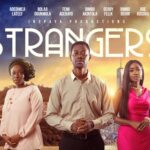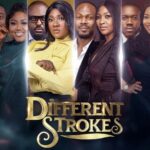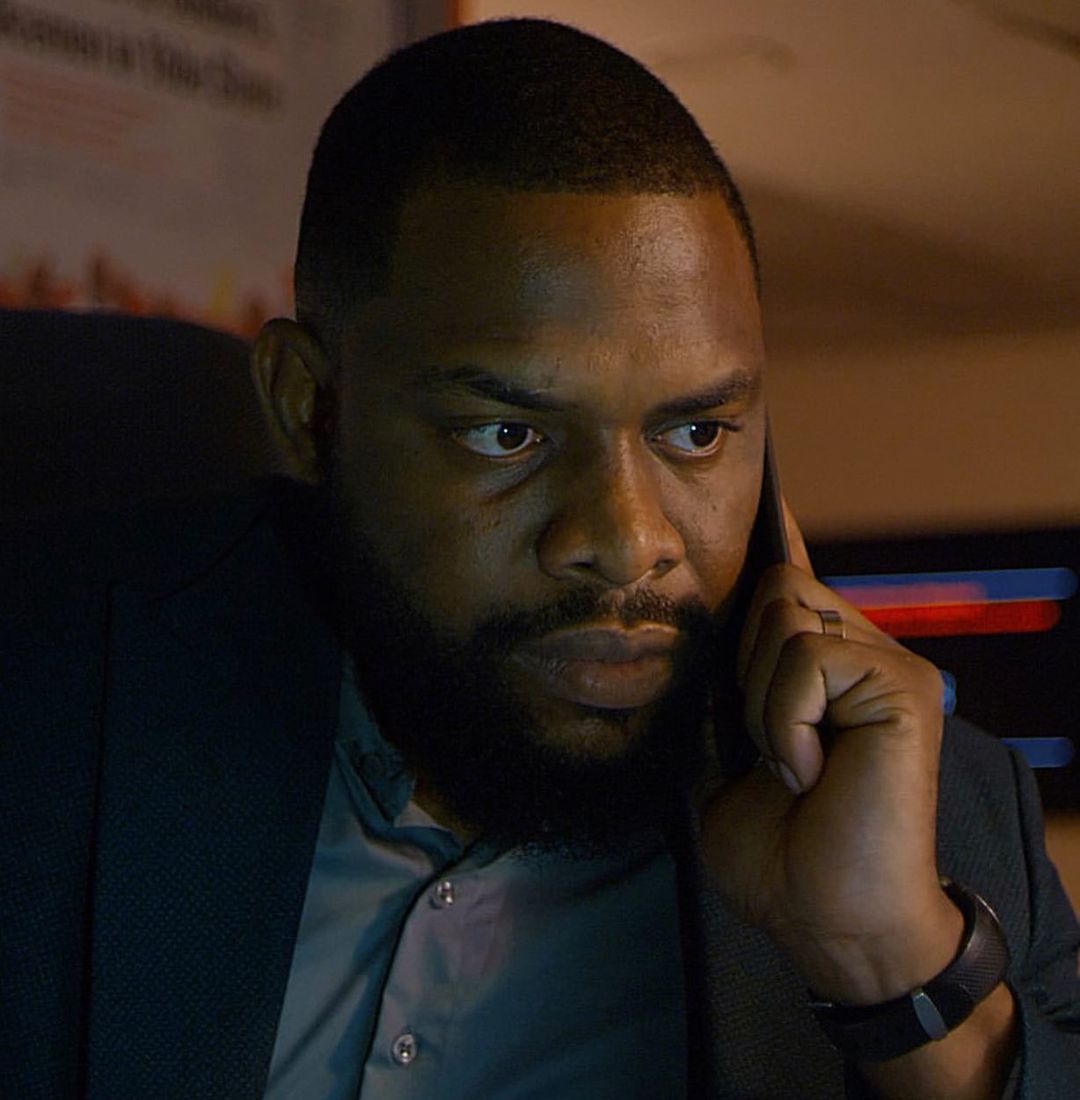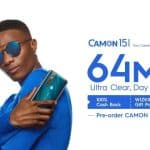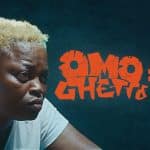Efa Iwara is one of Nigeria’s young and versatile actors. The rapper-turned-actor has created an impressive presence on all content platforms from feature films to TV series and web series. Regardless of the medium, he projects almost all of the characters he’s played since switching from music to films with the zest and gusto that makes the characters affable and dear to the viewers, therefore, winning laurels and hearts at the same stretch.
In this interview, he tells The Film Conversation’s Yousuph Adebayo Grey about how his brother inspired him to explore music, his transition to films, bagging his role as Tayo in ‘The Men’s Club’ while also sharing his thoughts about the film business in Nigeria.
- Advertisement -
To what extent does being the son of a Professor of Linguistics father and a Librarian mother mold your formative years?
I think that played a huge role in the person that I have come to be because that means that I was surrounded by books all the time. We always used to read many books; from fictional to non-fictional books. That gave me a huge amount of knowledge about different things. I think that was very important. Although, since I moved to Lagos, I’ve probably read like just 10 books because I don’t have a lot of time to read a lot of books but I’m still looking to create more time to read more.
You’ve spent a significant part of your life within the confines of the University of Ibadan. Coupled with your background, one would expect you to be a nerd. But this is you writing rap verses at the tender age of 9. How did music, particularly rap get into the picture for you?
- Advertisement -
I think I’m still somewhat of a nerd. So, my older brother is also a creative as well. I mean, with three sisters and one brother, normally, you get close to your brother. And we spent a lot of time together and I’ve watched him listen to rap music all the time. He was also part of a rap group. Of course, the younger brother tends to emulate their older brother. So, I ended up loving rap music. I wrote my first rap verse when I was nine; which was wack at the time. My brother laughed at me so hard. But yeah, I’d say that I went into music because of my brother. He pretty much inspired me to do music. But also, my father had to take some of the credits. We played a lot of music and watched a lot of movies at home. Even though we’re a very academic family, we are also very much in sync with entertainment. It was very well balanced.
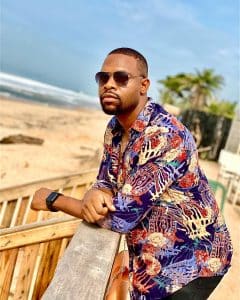
I’d want to believe that it’s one thing to be in sync with entertainment. It’s another thing to have one of your offspring wanting to explore a career in that space professionally. Given their disciplines, did they have concerns about you venturing into entertainment when you were starting out?
- Advertisement -
If you grew up in the 90s and your parent do not have worries about you going into entertainment, then I don’t think they are your parents (laughs). Of course, any parent would be skeptical about their child going into entertainment at the time.
So, how did you deal with that? How did you convince them?
So, yeah, that’s the thing. They were worried especially during the 90s and the 2000s. People at the time associated entertainment with drop-outs, no-gooders, alcoholics, drug users; people who would not have done well in life. I couldn’t blame them for having concerns. The onus was on me to convince them otherwise. But luckily, times have changed. I was talking to a friend of mine and we were discussing how people have seen entertainment than what it used to be. You can now do so well for yourself. Back in the day, if you’ve gone to play football, your father will beat you. But now, every son has to play football o. You’ll say, look at Messi. Music-wise, you’ll say look at Wizkid, Olamide, Davido. So, I realized that the only way to convince them would be to keep myself going and be successful. Now, they are very supportive.
- Advertisement -
A lot of people will identify you as an actor now but your first introduction professionally into the world of entertainment was music. I mean you were part of the group X-factor at some point. Before making the switch to films, describe to me that experience of making music professionally?
So, when I became an official rapper in the industry, I was young and I was doing it for fun majorly. As time went on, I realized that to succeed, I’ll need more than just having fun. And the record label I was with could not compete with the big dogs; Mavins, Storm Records, DMW. And the kind of music I was making wasn’t necessarily mainstream. It’s not for the street. It’s still not mainstream, but there are more possibilities now compared to then. Now, you have Spotify, you have Apple Music. But back then, it was just Radio, Clubs, performances, and Alaba mix. It was kinda weird how we had Terry G, Shayman. Unknown to a lot of people, I listen to that kind of music as well. I really do like Terry G. No jokes. I listen to him but it’s not just my style of music. I dropped the Waka EP. It was online but there weren’t streaming platforms then to put it on. I couldn’t make money from that. And then, when my deal was done in 2016, I started paying attention to my other love, acting, which I’ve been doing sparingly over the years.
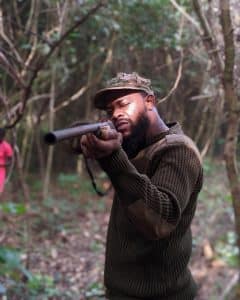
I read that you said that you started acting out of boredom and you were falling out of love with music at that time. It’s funny because you were significantly doing well with music. I mean you were on M.I’s Illegal Music II. You had an EP back in 2011 called The Waka. There was a track on the EP, ‘Ring N Your Finger’ that had Yemi Alade on it. It feels like you were doing well. So, what was it about the music that was boring you?
Okay. So, when I said I was bored, I didn’t mean the music was boring me. This is one of the cases where I get misquoted. The music was doing the rounds. People were talking about it but as a career, it wasn’t financially successful. I don’t think I was selling records. I just got paid for a couple of shows but I wasn’t selling records. The boredom was while I was creating the music and not getting shows. So, my manager at the time told me why don’t you go for acting auditions. It’s performance art as well and I hear you talk about movies all the time. Why not do it. So, at a point when I was home doing nothing, that’s what I mean by I was bored.
- Advertisement -
Let’s talk about films now. I’m curious to know if your identity as someone who has a presence in the entertainment industry already as a music artiste hasten the process of kickstarting your acting career?
Absolutely not. These are two different industries and I’ll explain. Just because you can sing doesn’t mean you can act. You can be Jay-Z and be a terrible actor. I won’t put you in my film. So, coming for auditions, I line up like every other person. Whatever I had done with music had no bearing at all. It was like a fresh start for me.
That’s fine but then how about with the network of people you’ve met while pushing your career as a music artiste and deploy that for your acting career? I mean, Tosin Igho, who directed you in ‘Seven’, you had met up with him back in 2015 to discuss some films. So, doesn’t that count?
- Advertisement -
Okay. So, I knew nobody. I didn’t even know a lot of Nigerian actors at the time. I was focused on music. I mean, I knew Ramsey Nouah, Genevieve and Omotola. I knew Kanayo O. Kanayo. I didn’t know who OC Ukeje was. He walked into a room and everybody goes ‘Oh, OC’ and I’m like who is this guy? It’s funny that you brought up Tosin because as at 2015 when he told me I’m coming into film and he showed me the concept for something else entirely and I was so impressed. I told him, ‘yo, I’m thinking of really focusing on my acting’. He wasn’t even a force in film then. He was a force in creating music videos but not in films. We are talking about it last week that, you know, we both started actively try getting into films around the same time. He wasn’t some big director that he is right now. He was just Tosin, the rapper that shoots music videos and I was Efa, the rapper that’s trying to act.
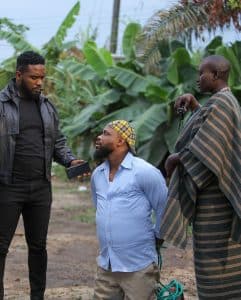
Talking about Tosin, the film ‘Seven’ is one of your recent works and he directed you on it. I can’t speak to the commercial acclaim but the critical plaudits it got was impressive. How does it feel being the apparent face of that film?
Like I said, Tosin and I met up last week because we just finished filming something new.
- Advertisement -
Is that a new film?
Yeah. It’s a feature film but I can’t give so much details. Tosin (Igho) cast me as the lead for ‘Seven’ when many people wouldn’t have. He cast me for ‘Seven’ in 2017 and trust me nobody has any idea who I was in 2017. Nobody cared. And it was a huge gamble because he had RMD in the movie, he had Uncle Bimbo Manuel, Daddy Showkey and a host of other people. You know, I’m sure somebody was whispering in his ears to say, why not go for a more known face. But he said, I believe in you. So, I’m always grateful to him for that opportunity. Not a lot of people would have taken that chance but he did.
So, Efa, let’s talk about ‘The Men’s Club’, a behemoth of a web series that has become a pop culture mainstay. I had a chat with Baaj Adebule recently and I asked him a question and his response is that he does not know. So, I’m going to ask you the same question. According to you, what was it about the series that has made it everyone’s favorite today?
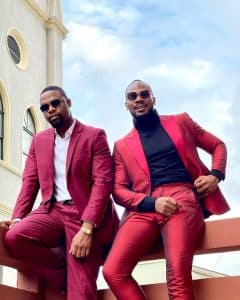
I think I’ll go with Baaj’s response and say that I don’t know either but I’ve been thinking about it and this is off the top of my head. I might be wrong. I think it’s because it’s that web series that talks about relationships from a guy’s perspective. Usually, a lot of projects are from a woman’s perspective. Even, Titanic. It was from a woman’s perspective but this now is from a guy’s perspective and it’s very unapologetic about it. It doesn’t paint the guys as saints. They are hugely flawed. So, people can relate to them. Even with the female characters as well. So, people can watch and say, what happened to Tumini happened to me; what happened to Lola happened to me. A guy can watch and say, that Tayo guy; one time I was confused like that.
- Advertisement -
Your character, Tayo, was one of the most intriguing ones. I’m curious to know what you were told about him when you were being briefed for this project?
That’s a funny story because when I auditioned for the character, they told me Tayo is a good-looking chap, eye-candy, girls-loving and he’s married. So, I said that sounds interesting. But then, I had to shave my beard off to play a role in ‘Ajoche’.
Yeah. For the first season, your beard was improvised, right?
- Advertisement -
Exactly. So, I looked weird but I was supposed to be the eye-candy and ladies’ man. So, when I got a call from the producer. I said look, I can’t go ahead with this anymore. I don’t look how I looked when I was auditioning months ago. I was going to even recommend other people. But they said no, Efa, we really want you to do this. I said I can’t do it because of the way I look. So, they said, they’ll give me an improvised beard for the first season and by the second season, I should have my beard back. So, I said, well, it’s your call. I ended up doing it and I ended up being trolled online which I found funny.
I think it was one of the downsides for the first season. The improvised beard wasn’t properly done.
Yes. I feel like it could have been done better. And also, I couldn’t cut my hair because I was still filming for ‘Ajoche’. So, it just looked weird.
- Advertisement -
So, how long did it take you to grow out your beards to properly fit into the character?
I’m not exactly sure. Maybe two months. And then I met up with Mr. Tola Odunsi and he said, thank God, your beard is back and you can cut your hair now.
At that time, you were done filming for ‘Ajoche’?
Yes. I was.
- Advertisement -
How similar or different from Efa, do you consider yourself to be compared to the character, Tayo that you played in the Men’s Club?
Very different. I don’t think I’ll ever be that confused. And I can understand where he’s coming from because I played the character. A lot of people don’t understand it. It feels like he’s trying to eat his cake and have it. But that’s not what it is. What it is, he’s in love with two women but I think he loves Tiara more but he’s still healing from his failed marriage and Tiara reminds him of his ex-wife. Rich girl, Daddy’s girl and he’s worried that if he gives his heart to her totally, the whole thing is going to happen again. On the other hand, you have Hadiza, who is older, calmer, more matured and who I don’t think he loves as much as Tiara but he sees her as his safe zone. He feels like, I don’t think this one would break my heart. So, he’s caught in-between all that.
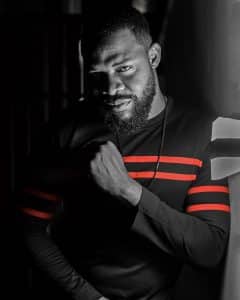
So, you don’t see yourself in that light?
- Advertisement -
Never. My brother, pick one. Don’t waste time.
Do you share any similarities with the character at all?
I think one of the similarities that I share with the character is that Tayo is fiercely loyal. A lot of people don’t notice that about Tayo but he would never abandon his friends. All the guys are loyal to each other but Tayo is always there for everybody. Don’t forget, when Season One started, Tayo followed Louis to a clinic for an abortion. No other person went. When Aminu had his site issues and was fighting everybody, who stayed back? Tayo. Tayo is your guy. But does anybody give him credit? No. You’ll say, he’s confused. Tayo is hardworking. He’s worked for every naira he’s earned. The only issue is he’s suffering from PTSD from his previous marriage to Naomi.
- Advertisement -
How did all four of you – Ayoola Ayolola, Daniel Etim-Effiong and Baaj Adebule – work out the chemistry that’s needed to pull off a gang of four like that?
My brother, I don’t know. I’ll always say it’s God and good casting. I’ve only met Ayoola once or twice. And that’s when we were both musicians. Daniel Etim and I were both on a project; a film but I don’t think he ended up doing the project. He came on set and I think he gave me a ride or something. But I hadn’t seen him after that. Baaj, I’ve only heard about him and I’d never met him before. So, we got cast and when I heard these are the other guys playing the characters, I was excited about it. These are guys I’ve not worked with but I had a huge amount of respect for. Then, we got on set and we just did it. But I think what helped was that we trust each other. If someone was doing something badly, we don’t think oh it works. We’ll say, ‘hey, what’s up, this is cool but why don’t you try this’. We have conversations. Because there are actors who’d look at you doing rubbish and will say, ‘ehn ehn, do rubbish, so that I can shine’. There wasn’t that. So, everyone just had everyone’s back.
One would think that after getting on ‘The Men’s Club’, all four of you share that level of friendship and bond off-screen right now. Is that correct? Are you guys still friends?
Yes. We are. The only downside is everybody is busy. But we link up when we can.
- Advertisement -
You’ve worked on a number of projects across many platforms. What differentiates a script you’ll like to work on from the one you would reject?
The storyline has to be exciting. It’s the first thing. Second of all, the cast I’m working with. This is not to say that if the cast is not someone I’ve heard of, I won’t do it. No! What I’m saying is, imagine if you get the script and they tell you the project has RMD, Dakore, Pete Edochie, Kanayo O. Kanayo. Of course, you’ll say, yes. The last part is I need to understand the producer and where the project is heading and the amount of energy that we’re both putting into it because in the end, it’s our collective effort.
So, have you been in positions where you turn down a script because it doesn’t seem exciting enough for you or you just don’t understand the Director’s vision?
- Advertisement -
Sometimes. I turn down scripts for different reasons. Sometimes, someone can just bring a story that’s interesting but with the character that I’ve played before. So, I can turn down the film. But then, sometimes when these people call you, you can tell that they don’t really care about you. They just called because someone recommended you. So, I feed on energy. You have to believe in me so that I’d believe in you.
I’d like to know if the value a project brings to you with respect to the pay, the publicity for your brand, and the social and artistic credibility counts?
Of course, everybody considers it. If someone puts the right amount on the table, you’ll do the project. But the artistic question comes to play when you read the script and it doesn’t excite me. Do I trade that off because of the amount of money? That’s where the real decision comes in.
- Advertisement -
So, expanding this beyond you and your craft, you’ve been in the industry for a while now. What according to you will be that one thing that needs to be addressed in order to make the film industry more structured and sustainable?
I’ve said this time and time again. I’m not tired of saying it again. I sound like a broken record already…
Is that the distribution network?
Yes. That’s it. I feel like that is the key to everything. That’s the thing that we are lacking. We have fantastic producers, directors, and actors. This is it. Let’s say you want to make a film and you have N10. You can’t pay me more than N2. And that means I can only dedicate a certain amount of time to this project. But you can only spend N10 on your film because you know that the maximum return you can probably get is N30. Imagine a situation where you have a global or an African distribution network that makes it possible for you to earn N500. Then, you can take the risk to make a film for N50 and you can pay me N10. And because you’re paying me N10, I can say for the next six months, I’m working on your script. Nothing else. Because you have more money now, your set design, your camera quality, everyone will be top-notch and you can have better production. So, with a stronger distribution network, the quality of our films will improve.
- Advertisement -
So, I agree with you but my concern is our sort of storytelling, the quality of our production technique, the marketing strength that’ll be needed to pull off something like this, do you think we have that sorted, enough for us to create a project that’ll ride on this distribution network and compete on the global stage? Do we write movies for global audiences?
Okay. So, when I get asked this question, most people don’t like my answer. My answer is a story is a story. I don’t understand writing a story for a global audience. As a creative, your story is your story. It’s like saying just because a film is coming from Nigeria, it has to be about the Igbo culture, so that we can put it on a global stage. I feel like that’s putting your creativity in a box. I don’t think we have the right to tell storytellers the kind of stories to tell. Do you. If it goes out there, it goes. If he doesn’t, he doesn’t. Let’s give people the freedom to do what they want to do and tell stories they want to tell; however, they feel like telling it.
I get you when you say we don’t have to tell storytellers the kind of story to tell. That’s fine, however, my concern is as much as filmmaking is an artistic endeavor, at the same time, there’s the business part to it. And we’re talking about business here when we say let’s create a more sustainable distribution chain. You could talk from an artistic point of view to say tell stories that interest you but don’t forget that we are investing money in creating a distribution network. What would be the essence of that chain when the stories we’re telling can’t work in these other climes that we intend to distribute to?
- Advertisement -
Okay. Wait. I think there’s some kind of miscommunication between us. What exactly was the initial question?
So, where we’re coming from is what exactly do we need to address; you establish that it’s creating the distribution network that’ll allow our films to travel wide and generate more revenue. So, what I’m saying is, do we tell stories that will be able to ride on these distribution networks that we’ve created and travel wide. Do you understand now?
Okay. I get it. There are two ways to address this. Nobody really knows what can sell and what cannot. And I’ll to you why. Do you realize that when Stan Lee was creating Spiderman, the first person that he showed it to said this thing will never sell? When Marvel was trying to make their own movies, they told them you’re not Warner Bros, it’s not going to work. My point is, first of all, nobody knows what is going to sell on any platform for sure. Second of all, I feel like as a creative, when you tell a story, you have a target audience. This is who I’m making it for. Look at ‘The MilkMaid’, I haven’t seen it yet but it made strides as a Nigerian movie at the Oscars though. That’s massive but if it came to the cinema, will it outsell ‘Omo Ghetto’ which is a fantastic movie and the highest-selling Nigerian film to date. Maybe, it will. Maybe, it won’t. You will never know. So, there are two different audiences and that’s the beauty of storytelling. So, let everyone tell stories, and let’s see where we go from there.
- Advertisement -
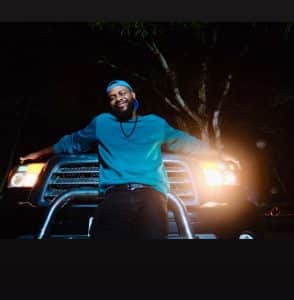
You sound like someone who is interested in entertainment not just as an actor but also in the backend of the entertainment business. Is that correct?
Of course. And I feel like everyone should.
So, what’s the long-term plan for you? Are we seeing you feature in roles like a Producer or an Executive Producer?
Oh, sure! I just finished shooting my short film which I co-directed with a friend of mine. It should be coming out any moment. I’m excited about it. It should be fun.



